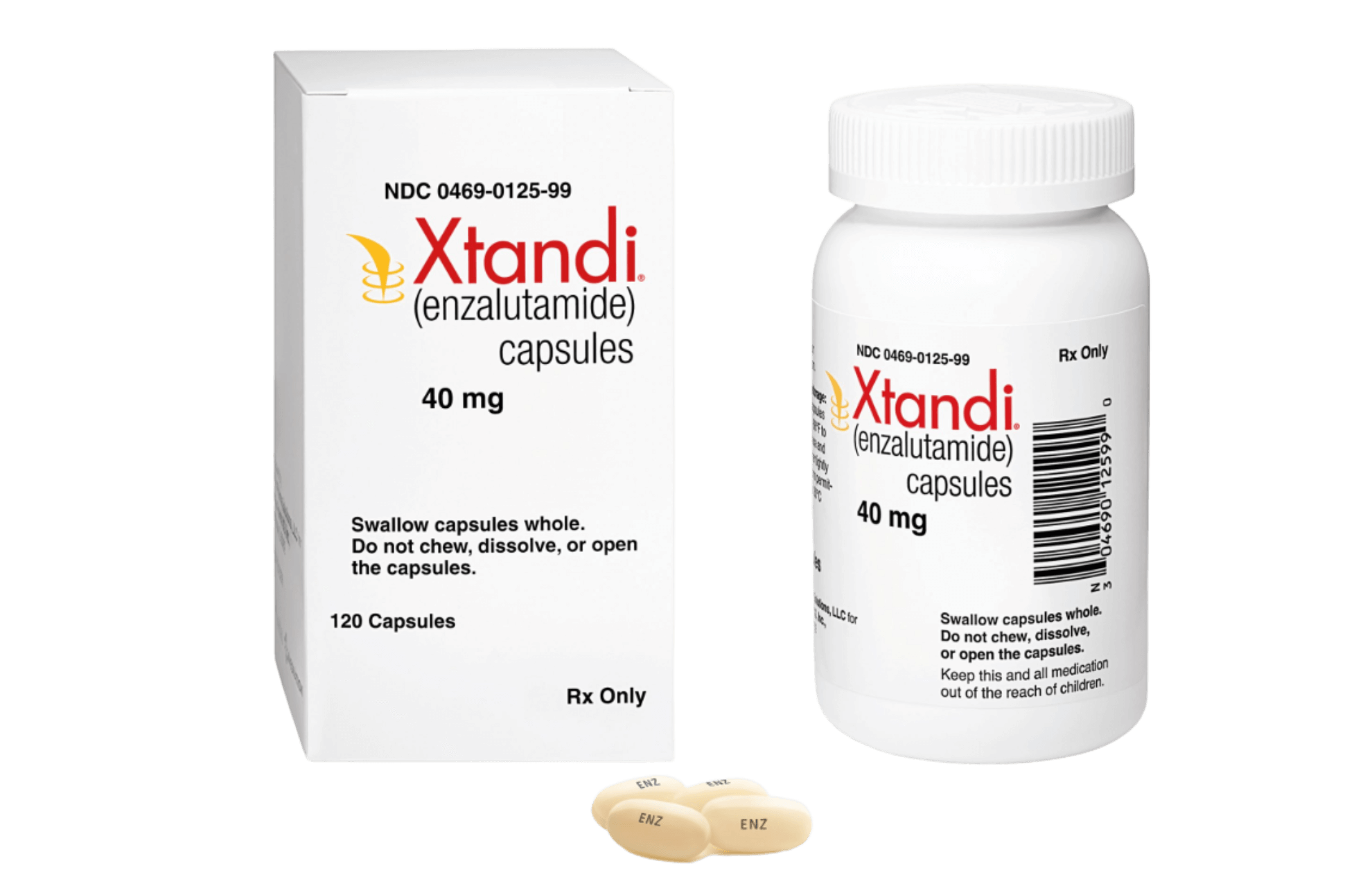Xtandi (
generic name: enzalutamide) is a prescription medication used to treat
prostate cancer, specifically in cases where the cancer has become metastatic (spread to other parts of the body) or has stopped responding to other hormone-based treatments.
Classified as an
androgen receptor inhibitor, enzalutamide works by targeting and blocking androgen receptors in prostate cancer cells, slowing down or stopping the cancer from growing and spreading. This mechanism of action makes it particularly
effective for patients whose prostate cancer is resistant to castration, where surgical or chemical reduction of testosterone production has not been effective. Xtandi has been widely studied and demonstrated to improve progression-free survival in patients with metastatic castration-resistant prostate cancer (mCRPC) and non-metastatic castration-resistant prostate cancer (
nmCRPC).
By inhibiting androgen receptor signaling,
Xtandi provides a powerful option for individuals with advanced prostate cancer, improving quality of life and extending survival in many cases.
Caution
Xtandi is only prescribed to adult men. Men who are still sexually active with a fertile woman who can become pregnant or with a woman who is already pregnant must use a condom and another effective birth control method during treatment and for three months after completing treatment with the medicine.
Dosage
Patients should follow the prescribed dosage strictly and consult their healthcare provider with any questions about its usage. Xtandi is typically taken once daily, with or without food, as directed by a healthcare provider. Patients should not alter the dosage unless advised by their physician.
Storage
Capsules should be stored at room temperature in their original sheets until needed for immediate use. They must be kept away from excessive heat or moisture and out of the reach of children.
For more information, read our article on drug storage.
Common Questions About Xtandi
Can Xtandi cure prostate cancer?
Xtandi is not a cure for prostate cancer but is highly effective in controlling disease progression in advanced cases. Blocking androgen receptors in cancer cells slows or halts tumor growth, improving patients’ quality of life and extending survival time.
How does enzalutamide work against prostate cancer?
Enzalutamide works by blocking androgen receptors, which are essential for prostate cancer cell growth. By preventing androgens like testosterone from activating these receptors, enzalutamide slows down or stops tumor growth, making it valuable for treating advanced prostate cancer.
Does Xtandi work better than other treatments for prostate cancer?
Xtandi is one of several effective treatments for advanced prostate cancer. Unlike some therapies, it directly inhibits androgen receptors. Whether it’s more effective depends on individual patient factors, and a healthcare provider can determine the best treatment approach based on response and disease progression.
How is an androgen receptor inhibitor different from chemotherapy?
Androgen receptor inhibitors specifically target androgen receptors to hinder cancer growth in hormone-resistant prostate cancer cases, while chemotherapy targets all rapidly dividing cells. This targeted approach often results in fewer side effects than traditional chemotherapy.
This text is for informational purposes only. Please consult a doctor or pharmacist before using any medication.
Read the information leaflet that comes with the medication.
Most men who use Xtandi do not experience any adverse side effects. Doctors prescribe this medication because they assess the benefits of such treatment outweigh any likely unwanted effects.
Some of the side effects that have been reported include fatigue, weakness, dizziness, and hot flashes. Serious side effects can occur, such as seizures, high blood pressure, and falls, especially in patients with a history of these conditions. Seek medical attention immediately if any of the effects are felt. Xtandi may also increase the risk of falls causing fractures, so support for balance may be needed during treatment.
Not all side effects are listed here. If these or other unlisted symptoms persist or worsen, consult a healthcare provider or pharmacist.
Xtandi is FDA-approved for treating metastatic castration-resistant prostate cancer (mCRPC) and non-metastatic castration-resistant prostate cancer (nmCRPC). Symptoms of these conditions include increased urinary frequency, difficulty urinating, bone pain, and general weakness.













